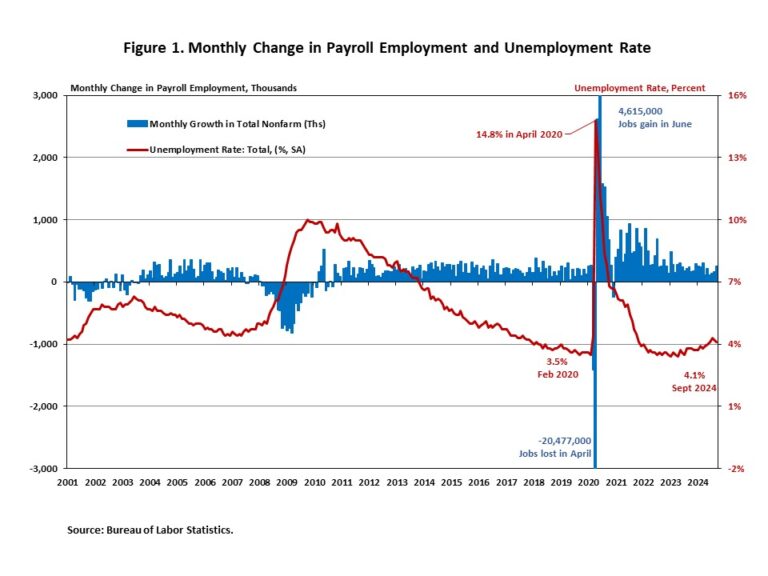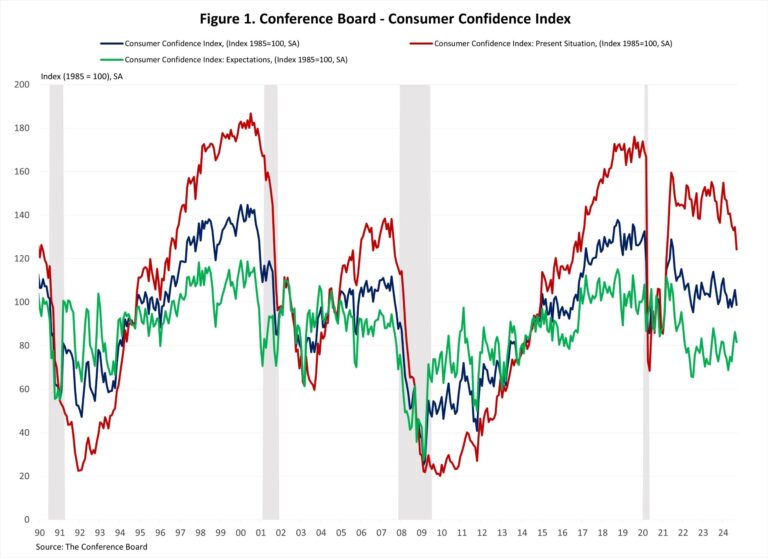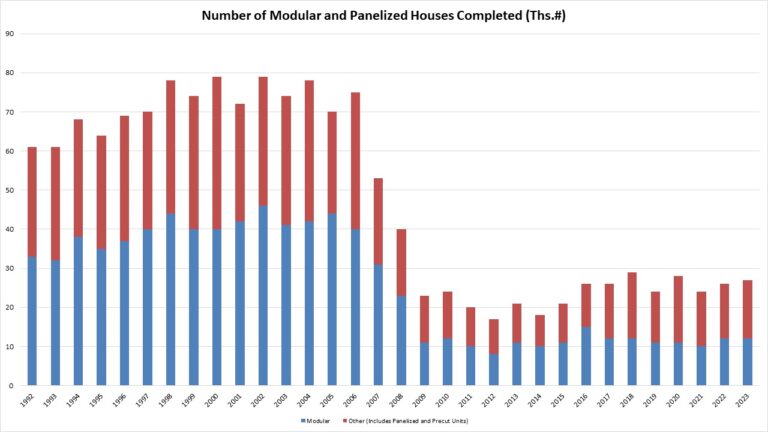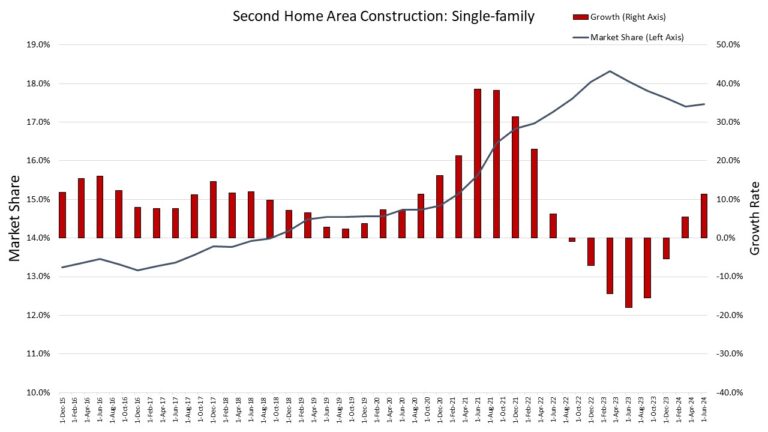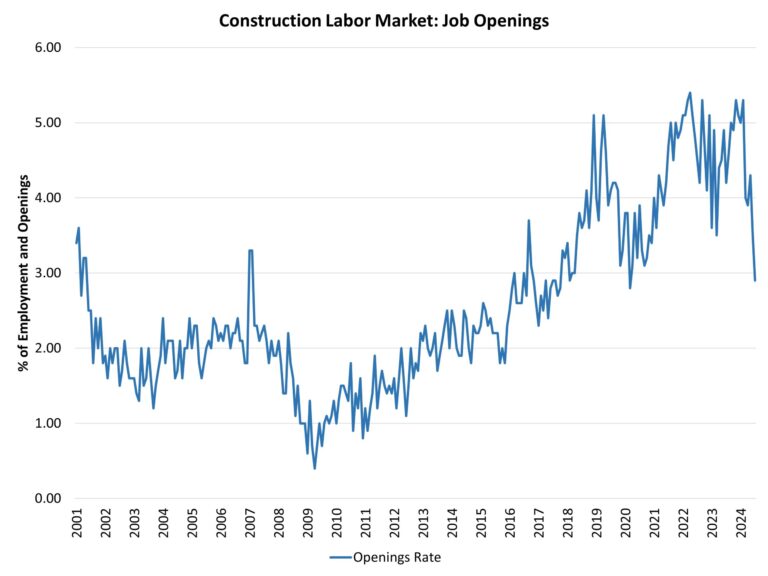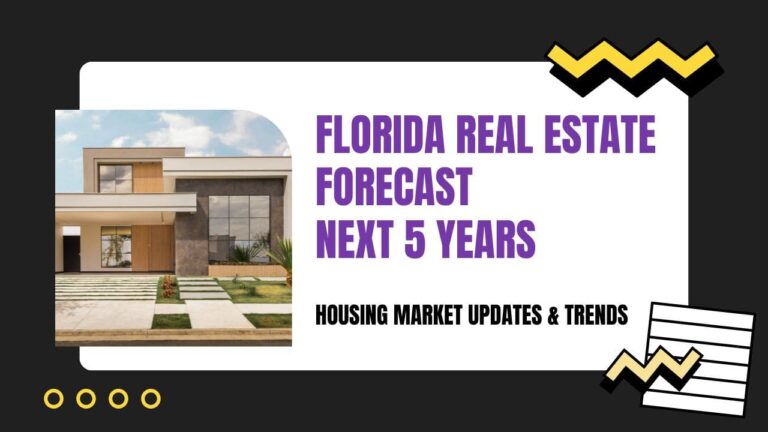Sunshine, sandy beaches, and a booming tourism industry have always placed Florida’s housing market in the spotlight. This influx of visitors translates to a constantly evolving real estate market, with opportunities and challenges for potential buyers. Home values continue to rise, though slower than in the recent past. This article explores everything you need to know about Florida’s housing market, from pricing trends to valuable insights for buyers and sellers.
Key Takeaways
Sales Surge: Closed sales of existing single-family homes surged by 5.2% year-over-year in July 2024.
Inventory Growth: Both new listings and inventory rose significantly in July 2024 compared to the previous year.
Median Prices: The median sales price for single-family homes saw a slight increase of 0.5%, while condo prices dropped by 1.3%.
Market Variation: Market behaviors vary by region within Florida, indicating diverse conditions.
Interest Rates Impact: Lower mortgage rates are boosting homebuyer demand, enhancing purchasing power.
How is the Florida Housing Market Doing Currently?
Home Sales
In July 2024, Florida’s housing market reported a total of 23,353 closed sales of existing single-family homes, representing a 5.2% increase from the same month last year. Conversely, condo-townhouse sales experienced a slight decline of 1.2%, totaling 8,364 units sold. This differentiator highlights changing preferences among buyers, with single-family homes gaining popularity amidst evolving market conditions.
According to the data from Florida Realtors®, these closed sales serve as a crucial indicator of market health. While sales for single-family homes have risen, the slight fall in condo sales indicates that different segments are behaving variably and buyers are perhaps gravitating towards larger properties that offer more living space.
Home Prices
Analyzing the median sales prices reveals crucial insights into affordability and market dynamics. The statewide median price for single-family existing homes reached $416,990, essentially unchanged with a 0.5% increase from July 2023. Meanwhile, the median price for condo-townhouse units was reported at $315,000—a 1.3% decline year-over-year.
Dr. Brad O’Connor, Chief Economist for Florida Realtors®, emphasized that these price shifts reflect a stabilization that could mitigate affordability challenges. The slight rise in single-family home prices, coupled with the decrease in condo prices, may indicate a normalization of the market as more inventory becomes available.
Housing Supply
The housing supply in Florida is undergoing a transformation, predominantly marked by increased inventory levels. In July 2024, new listings of single-family homes rose by 10.7% compared to the previous year. The condo and townhouse market saw a even steeper increase of 13.8% for new listings.
As reported by Florida Realtors®, single-family homes currently represent a 4.6-month supply, while the supply for condo-townhouse properties sits at 7.4 months. This developing supply landscape indicates a potential shift towards a buyer’s market, easing some of the price pressures that have dominated recent years.
Market Trends
Market trends in Florida are increasingly reflecting a more balanced approach, influenced heavily by rising inventory and changing sales dynamics. There is a marked difference in how various regions within Florida are faring. Urban centers, such as Miami and Orlando, might display robust demand due to economic drivers, while less-populated areas may see moderate activity.
The data suggests that buyers are beginning to have more options, which ultimately leads to more informed purchasing decisions. Lower mortgage rates are also contributing positively, granting buyers greater purchasing power and encouraging first-time homebuyers to enter the market.
According to Florida Realtors® President Gia Arvin, these trends showcase a promising evolution in the marketplace aimed at addressing ongoing affordability challenges. As inventory continues to expand, buyers may find themselves in a more favorable environment for negotiation, potentially leading to longer-term market stability.
In summary, the Florida housing market is showing resilience and adaptability amid fluctuating conditions. With significant increases in inventory and new listings, along with a modest uptick in single-family home sales, state dynamics are making room for potential growth and stability.
Florida Real Estate Forecast for Next 5 Years
Florida home values have risen by about 80% over the past 5 years and a positive trend is forecasted for the next 5 years. With the recent spike in mortgage payments as a result of rising interest rates, analysts are watching the Florida housing market closely to see what effect this will have. It is likely to restrict house price increases, but to what amount is unclear because there is still a “fear of losing out” attitude among purchasers, which is fueling the market, although slowly.
It’s no surprise that Zillow ranked Tampa, Florida, as the top real estate market in the United States in 2022. Florida housing prices have witnessed some of the most dramatic increases in the country, with Miami and Tampa at the forefront of the upswing. Due to a variety of variables, the housing market in Tampa has outpaced many others, including a large number of potential buyers, a scarcity of supply, strong property sales, and an active employment market in the area.
Overall, the Florida housing market is strong and is predicted to remain so in the next five years. If you’re a seller, this is wonderful news since it implies property values are rising and there isn’t much selling competition, giving you the luxury of selecting from the best offers on your schedule. Higher mortgage rates may cause unprepared house buyers to postpone their purchases.
If this reduces buyer demand sufficiently in some Florida areas, price appreciation may decrease. The lower price increase may provide remaining buyers who can afford higher interest rates more confidence in locating a home they can afford. And that leads to fewer home sales. If you’re selling a home in Florida this year, the odds are good that you’ll come out ahead financially. Real estate prices and mortgage rates are rising, and the few affordable houses that remain are being snapped up like sardines. If you want to buy in this market, now’s not the time to buy.
Whether or not the country enters a recession, the housing market appears to be in good shape for the foreseeable future. Perhaps not at the same rate that the United States has lately seen, but growth nevertheless. This is an excellent moment for real estate investors, particularly those interested in Florida, to capitalize on market possibilities.
Florida Real Estate Appreciation Rates For 10 Years
Florida’s real estate market has seen unprecedented price rises during the last few years, as a result of a lack of supply and high demand. Most of the emphasis is focused on the prices and the possibility of a housing bubble. While Florida’s mild temperature, cheap taxes, and natural attractions have historically enticed newcomers to the state, if affordable housing challenges continue to prevail across the state, these enticing elements may go away.
A post-pandemic world necessitates that the state of Florida deal with the fact that pricey housing can in certain respects impede economic growth and have an unequal impact on critical segments of the population. Florida has had some of the strongest housing appreciation rates in the country over the past decade.
Real estate appreciation rates in Florida have shown significant growth over various time periods, making it an attractive market for investors and homeowners alike. Here’s a breakdown of the appreciation rates based on data from NeighborhoodScout:
Latest Quarter (2022 Q4 – 2023 Q1)
During the latest quarter, spanning from the fourth quarter of 2022 to the first quarter of 2023, Florida’s real estate market experienced a modest appreciation rate of 0.02%. While this figure may seem relatively low, it’s essential to note that it outperformed the national average by 0.08%, indicating a resilient housing market in the face of economic fluctuations.
Last 12 Months (2022 Q1 – 2023 Q1)
Over the past year, from the first quarter of 2022 to the first quarter of 2023, Florida’s real estate market saw a substantial appreciation rate of 13.07%. This robust growth mirrored the average annual rate, once again highlighting the state’s resilience and attractiveness to investors, with a remarkable performance ranking of 10 compared to the rest of the country.
Last 2 Years (2021 Q1 – 2023 Q1)
Examining a slightly longer timeframe, from the first quarter of 2021 to the first quarter of 2023, the appreciation rate in Florida stood at an impressive 44.36%. This growth far exceeded the national average, by 20.15%, reinforcing Florida’s reputation as a thriving real estate market.
Last 5 Years (2018 Q1 – 2023 Q1)
Over the past five years, from the first quarter of 2018 to the first quarter of 2023, Florida’s real estate market exhibited substantial appreciation, boasting a rate of 77.01%. This rate exceeded the national average by 12.10%, signifying Florida’s consistent and strong real estate performance.
Last 10 Years (2013 Q1 – 2023 Q1)
When considering the last decade, from the first quarter of 2013 to the first quarter of 2023, Florida’s real estate market recorded remarkable appreciation of 174.83%. This growth, which surpassed the national average by 10.64%, demonstrates the state’s enduring appeal to real estate investors.
Since 2000 (2000 Q1 – 2023 Q1)
Finally, when looking at the broader picture from the first quarter of 2000 to the first quarter of 2023, Florida’s real estate market experienced exceptional appreciation, amounting to 281.81%. Even over this extended period, Florida outperformed the national average by 6.00%, reaffirming its status as a top choice for real estate investment over the years.
These appreciation rates indicate the dynamic and resilient nature of Florida’s real estate market, making it an attractive destination for those looking to invest in property.
Within Florida, Tampa Bay has one of the most overpriced housing markets in the nation, according to new research from Florida Atlantic University. Extremely low mortgage rates drove our red-hot housing market, particularly during the epidemic, and intensified bidding wars. Lakeland ranks 12th nationally, and second in the state, with homes overvalued by more than 53.2%. North Port-Sarasota-Bradenton is No. 17 nationally, fourth in the state at 48.9%.
What’s Affecting the Florida Housing Market in 2024?
Florida’s housing market, once a whirlwind of bidding wars and record-breaking sales, has entered a new phase in 2024. Let’s delve deeper into the key factors shaping this evolving landscape:
The Interest Rate Effect: The most impactful change is the significant rise in mortgage rates. Rates that hovered around 3% in early 2023 have climbed to over 7%, significantly affecting affordability and dampening buyer fervor. This translates to buyers having more breathing room to negotiate and explore options, a stark contrast to the recent past.
Inventory In Flux: With the sales frenzy subsiding, the number of homes on the market is gradually increasing. This rise in inventory benefits buyers by providing more choices and alleviating the intense competition that characterized the market in prior years. While some sellers may still experience bidding wars, particularly for highly desirable properties, buyers are no longer pressured into hasty decisions fueled by a lack of options.
Price Growth in Check: Fueled by low inventory and high demand, home prices in Florida have enjoyed steady appreciation for years. However, with rising interest rates squeezing affordability, the pace of appreciation is expected to slow down considerably in 2024. Experts even predict price stability or slight corrections in some areas, particularly those that experienced the most dramatic price hikes. This could present a potential buying opportunity for those who were previously priced out of the market.
Sellers Re-entering the Fray: Many homeowners who opted to hold off on selling during the seller’s market frenzy may decide to re-enter the market in 2024. This influx of listings will further contribute to the rise in available inventory, potentially tipping the scales further in favor of buyers. However, it’s important to note that Florida’s enduring appeal as a retirement destination and tax haven will continue to attract new residents, putting pressure on housing supply despite the market shift.
Demographic Shifts Continue: Florida’s sunshine, sandy beaches, and reputation for a relaxed lifestyle continue to be a magnet for retirees and those seeking a lower tax burden. This steady influx of new residents will undoubtedly put pressure on housing supply, even with the anticipated rise in inventory. This means that while affordability may improve in the short term, long-term price appreciation is still a possibility due to these strong demographic tailwinds.
New Construction on the Horizon: The persistent demand for housing, coupled with the ongoing shortage of existing inventory, may incentivize an increase in new home construction in 2024. This could help alleviate some of the pressure on housing supply, particularly in high-demand areas. However, rising construction costs and ongoing supply chain issues could pose challenges for builders, potentially limiting the pace of new development.
Will the Housing Market Crash in Florida?
Population growth, and particularly growth in the number of households, lead to a growth in housing demand. Real estate is subject to the law of supply and demand: when there are more purchasers than available homes, prices rise. Since the 1940s, Florida’s population has increased year after year, often outperforming the national average. However, like the rest of the United States, growth plummeted to historic lows during the initial years of the pandemic until rebounding last year.
Florida is now America’s fastest-growing state. According to recent census data, the Sunshine State added over 400,000 additional people between July 2021 to July 2022. It was a growth of 1.9%, bringing the total population to 22,244,823. That makes it faster-growing than Texas, which has the second-largest population in the United States, trailing only California.
According to experts, the national housing market or the market in Florida is nowhere near the crash that occurred during the Great Recession of 2008. This is partially due to tighter lending laws coming from the financial crisis. Borrowers are in considerably better shape, as seen by their improved credit scores. And as a result of rising home values, homeowners have a record amount of equity.
The current situation is a fairly complex web, but it’s nothing compared to the 2008-2009 market crisis, which took years to unravel. The Fed’s pandemic actions fueled a housing boom. As it tries to withdraw that support, it could be bad news for housing but will it lead to a crash? The Fed will continue to play a crucial role in the future of the housing market.
Back in February 2020, the Fed owned $1.4 trillion in mortgage-backed securities, and the number was falling rapidly. As the pandemic took root, however, the central bank initiated a new round of bond purchases (known as “quantitative easing”), bringing the number to $2.7 trillion.
Fed seeks to tighten monetary policy to combat inflation Although it wants to shrink that portfolio it is quite improbable that the Fed can unwind its balance sheet. It might simply accept the fact that it will continue to play a disproportionate role in the housing market and have a larger balance sheet than it would prefer. Prepare for a collapse, not a correction, in the housing market during the next 18 to 24 months if they do.
How is the Florida Housing Market for Investors?
Florida’s strong population growth, diverse job market, tourist attractions, affordable property prices, tax benefits, and diversified economy all contribute to making it a hot spot for real estate investment.
Strong Population Growth and Job Market:
Florida has strong population growth, particularly in cities like Miami, Orlando, and Tampa. The population has grown consistently and positively over the years, and in 2023, it increased by 1.6%. This makes Florida the third most populated state in the US, with a population of over 22.6 million people.
In 2022, Florida was the fastest-growing state in the country for the first time since the 1950s, increasing by 1.9%. This leads to an increased demand for housing, making it a prime location for real estate investment.
Additionally, Florida’s job market is diverse and growing, which attracts new residents and supports the demand for housing. According to FloridaCommerce, Florida’s private sector job growth rate increased by 2.1% in March 2024, which is faster than the national rate of 1.7%. In January 2024, Florida’s labor force grew by 2.2%, which is faster than the national rate of 0.8%.
Tourist Attraction:
Florida is a booming real estate market due to tourism. Florida attracts millions of tourists annually. In 2023, Florida’s market share of domestic tourists increased to 14.8%, up from 13.8% in 2022. This surge in market share represents the largest increase of any state, underscoring Florida’s appeal to travelers from across the country.2 days ago
In tourist-heavy areas like Miami, Orlando, and others, vacation rental properties are in high demand. Vacation rentals offer greater space, privacy, and facilities than hotels for Florida tourists. Investors can earn rental income and gain property value via vacation rentals.
Vacation rental properties are more reliable and profitable than typical rental properties due to high demand. Tourists pay extra for comfortable vacation rentals. Tourist demand can remain consistent throughout economic downturns, making vacation rental properties more market-resilient. Florida’s great tourist draw can offer real estate investors looking for vacation rental properties a reliable and successful revenue stream and property value appreciation.
Realtively Affordable Property Prices:
Compared to other states like California, property prices in Florida are relatively affordable, which can make it an attractive option for real estate investors. This can lead to strong returns on investment and can make it easier for investors to purchase multiple properties. It’s important to note that property prices can vary widely depending on location and property type. While some areas of Florida may have lower property prices, other areas, such as beachfront or tourist-friendly areas, may have higher property prices.
Tax Benefits:
Florida’s lack of state income tax holds significant advantages for real estate investors. This translates to higher net profits, as rental income isn’t taxed by the state. This frees up more cash flow that can be used for reinvestment, debt repayment, or simply boosting financial security. Additionally, the absence of state income tax directly improves the return on investment (ROI). With less money going towards taxes, the overall return becomes more attractive.
Compared to real estate markets in states with high income tax rates, Florida offers a competitive edge. Investors looking to maximize their returns are naturally drawn to Florida’s tax benefits. There’s also a tax deferral advantage. Capital gains taxes on selling an investment property are typically deferred until the sale occurs. This allows investors to accumulate wealth and potentially benefit from lower tax rates in the future.
For seasonal residents who rent out their properties during off-seasons, Florida’s tax structure is particularly attractive. The lack of state income tax on rental income can be a major draw, making Florida a compelling option for this investor group.
It’s important to remember that while there’s no state income tax, Florida does have other taxes that can impact real estate investors. Property taxes and sales taxes on renovations are important factors to consider. Consulting with a tax advisor is crucial to fully understand the tax implications of real estate investment in Florida.
Diversified Economy:
Florida’s real estate market benefits from the state’s diverse economic landscape. Unlike regions reliant on a single industry, Florida’s economic engine is powered by a mix of sectors like agriculture, tourism, aerospace, and technology. This diversification acts as a buffer during economic downturns.
Florida’s economy grew 9.3% in 2023, the fastest rate in the country, and is expected to continue to grow at a faster pace than any other state. However, some expect growth to decelerate to 2.8% and 1.1% over the current and next fiscal years as businesses and consumers transition from a high inflation environment to a high interest rate environment.
Even if one industry slumps, the others can help maintain stability, which translates to a more predictable market for real estate investors. However, this advantage shouldn’t overshadow the importance of thorough research. Understanding the specific market, the property itself, and developing a risk management plan are all crucial steps before investing in Florida real estate.

